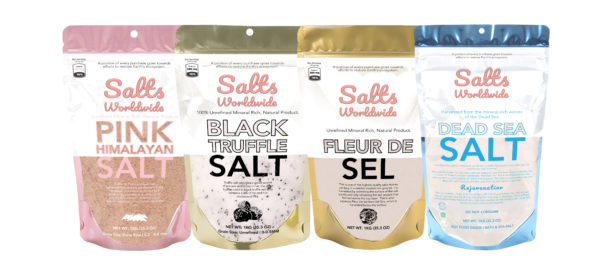Iodized Himalayan Salt – Health Issues
In the UK, iodized Himalayan salt is also widely used in the US. The ionic nature of this particular type of salt means that it contains naturally occurring elements that are harmless to human cells but can be harmful to the human body if the concentration is too high.
Iodized Himalayan salt is manufactured in the same way as most other salts worldwide. However, the process used to produce it ensures that there is no danger of the concentration of salts being too high, thus avoiding some of the problems that are often associated with commercial salts. In this article we will be looking at how this kind of salt is manufactured.
The first step is to remove the iodine from the salt, either by heating the salt to high temperatures or using a method that kills the iodine. The iodine that remains in the salt will then undergo a process known as freezing out.
One of the advantages of using iodized salt is that it contains no iodine content. It therefore does not contain any iodine and is therefore considered to be safe to use by many people.
It has been established that one of the problems in salt production process is the fact that the concentration of iodine can become too high. Iodine is an essential element and does not break down into its component elements when exposed to air. The concentration of these elements can be high enough to cause health problems when consumed over a long period of time.
A further benefit is that salt is able to retain its properties of density. This means that the salt will have the same density no matter how much salt is used, which is important if it is to be transported in the same container to different locations. In addition, it can be used in a wide variety of different food and drink products. There are many types of salt, including caking, granular, brown and crystal salt. Iodized salt is used to make various different kinds of salt including salt spread, table salt, ice cream and dried fruit.
The main difference between iodized salt and other salts worldwide is that the iodine content is removed by heat during the manufacturing process. The use of this particular salt has been restricted in the UK due to its potential health problems.
Most foods that contain iodized salt have warnings about its use, and some are clearly marked as containing iodized salt on the packet. However, in recent years the sodium levels have risen dramatically in processed foods, and iodized salt still continues to be a popular addition to most foods.
There are some preparations of salt that contain no iodine, which are usually sold without the inclusion of the word iodized. Such salt will contain sodium chloride, and not iodine.
Many health professionals believe that drinking a lot of salt is unhealthy for anyone, and there is some evidence to support this. They state that people who consume too much salt are more likely to develop high blood pressure, a risk factor for heart disease.
If you are interested in reducing your sodium intake and you want to lose weight, there are plenty of other ways to do so that do not involve salt. To lose weight safely, it is probably best to include more fruits and vegetables into your diet.



